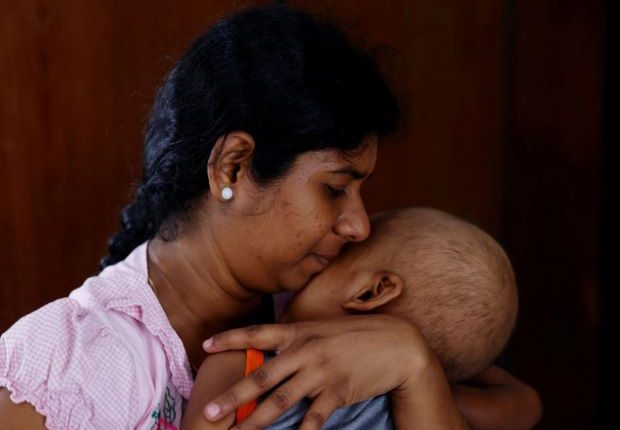Cancer care in Sri Lanka amid financial crisis

By Manjulika Das
KOLKATA – Sri Lanka has been experiencing economic turmoil for 17 months, leading to a lack of access to medicines and medical supplies and consequent disruption in the treatment of various diseases, including cancer. Due to the financial crisis and the subsequent scarcity of foreign currency, Sri Lanka—which previously imported 85% of its required medicines—discontinued repayment of foreign financial dues in April, 2022, hindering the country’s capacity to import medicines and medical supplies (from India and Bangladesh, among others).
The World Health Organization (WHO) stated that, as of October, 2022, 150 essential medicines, including cancer chemotherapy drugs, were out of stock in Sri Lanka. According to Direct Relief (Santa Barbara, CA, USA) cancer chemotherapy cannot be given in Sri Lanka because of the unavailability of chemotherapeutic agents. Additionally, a lack of anaesthesia in Sri Lankan hospitals has led to the discontinuation of surgeries.
Suvadip Chakrabarti (Apollo Cancer Centre, Kolkata, India) told The Lancet Oncology, “The Sri Lankan financial crisis is [affecting] the core sectors [including] health. Like other specialties, oncology is affected, with short supply of chemotherapy and immunotherapy medication. Patients currently on chemotherapy protocols are becoming ‘forced’ defaulters, which will result in disease relapse or progression”.
He added, “Lack of anaesthesia resources [has hindered] surgical oncology procedures [in Sri Lanka]. [Cancer] surgeries are ‘semi emergencies’, [so], if not done at the early stage, it will adversely affect [cancer] cure rates. [Haematological] and lymphatic malignancies will be affected in the absence of immunosuppressants”.
“The situation in Sri Lanka is heart-wrenching”, commented Anish Ray (Cook Children’s Medical Centre, Fort Worth, TX, USA). He told The Lancet Oncology, “For cancer patients, the ongoing care [has been] affected; apart from that, there may be disruption in measures to prevent cancer, given the economic nature of the problem”.
A cross-sectional survey carried out in Sri Lanka and published online in May, 2023 showed that, among the 1214 respondents (aged 18 years and older), 39% reported that they, 41% that their family members, and 37% that their children had changed their medicine use during the financial crisis. The survey noted a two-fold increased risk of medicine non-adherence among respondents whose earnings per month were less than 100 000 Sri Lankan rupees (US$ 308·34) compared with respondents whose monthly income was more than this.
On Jan 24, 2023, a statement from WHO revealed that, although Sri Lanka’s yearly estimated budgetary allocation for the import of medicines and surgical consumables was US$ 300 million, a fund of merely $80 million was available as of January, 2023 (provided by donors), leading to a funding gap of $220 million.
However, before the economic turmoil, Sri Lanka had an effective cancer care system. Cancer care in the public sector is provided free of cost through 19 regional centres that cover nine provinces. In 1980, the National Cancer Control Program was established in the country and helped substantially in the prevention and control of malignant diseases. The country has also had a Cancer Registry since 1985, maintained by the National Cancer Control Program. According to the Global Cancer Observatory, in 2020, Sri Lanka had 29, 604 new cases of cancer and 16, 691 deaths from malignant diseases. The most frequently reported cancers (among all sexes) in Sri Lanka include breast, lip and oral cavity, colorectal, lung, and oesophageal cancers.
Sri Lanka has received support in tackling its economic crisis. Between April, 2022, and August, 2023, Direct Relief have sent donations of medicines worth $126·9 million to Sri Lanka, including cancer medicines. WHO has assisted the Sri Lankan government by providing direct financial support (eg, $1·5 million was provided, funded by Italy and the US Department of State) and medicines and consumables amounting to $7·1 million in 2022. WHO headquarters provided additional medicines and consumables amounting to $4·1 million, including cancer medicines, to the Sri Lankan Ministry of Health. The Japanese government provided Sri Lanka with essential medicines worth $1·5 million through UNICEF, and India has provided development-related assistance to Sri Lanka, which currently amounts to around $5 billion. Additionally, the International Monetary Fund has approved a 48-month Extended Fund Facility to Sri Lanka, amounting to $3 billion.
In this context, Chakrabarti said, “Unless the financial crisis resolves [immediately], there will be a tsunami of cancer patients [in Sri Lanka]”. “I would urge the world community to extend support to the people of Sri Lanka to help them overcome this truly pathetic situation, particularly with respect to cancer care”, Ray added.
-thelancet.com


Comments are closed, but trackbacks and pingbacks are open.